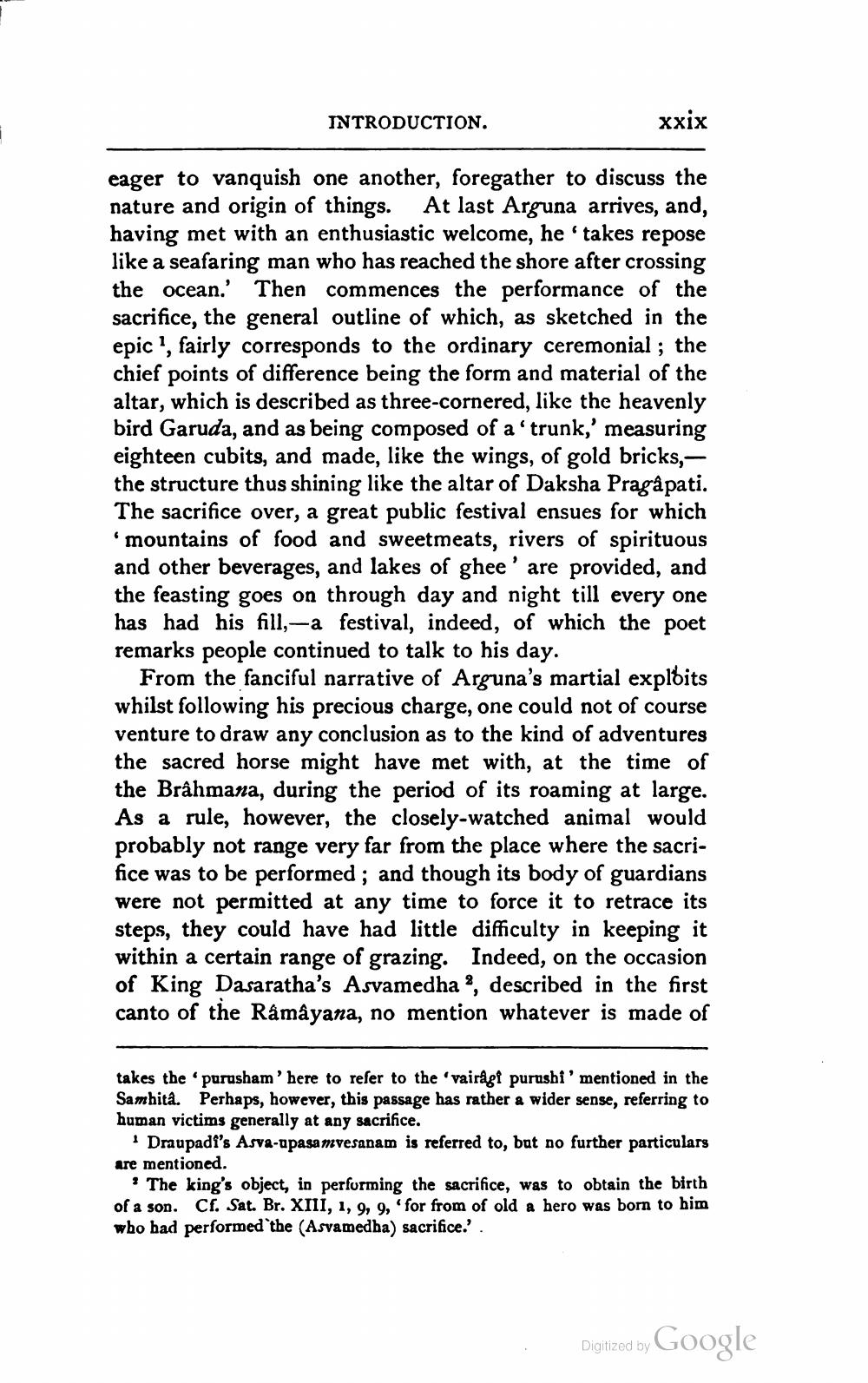________________
INTRODUCTION.
xxix
eager to vanquish one another, foregather to discuss the nature and origin of things. At last Arguna arrives, and, having met with an enthusiastic welcome, he takes repose like a seafaring man who has reached the shore after crossing the ocean.' Then commences the performance of the sacrifice, the general outline of which, as sketched in the epic ?, fairly corresponds to the ordinary ceremonial ; the chief points of difference being the form and material of the altar, which is described as three-cornered, like the heavenly bird Garuda, and as being composed of a trunk,' measuring eighteen cubits, and made, like the wings, of gold bricks,the structure thus shining like the altar of Daksha Pragâ pati. The sacrifice over, a great public festival ensues for which mountains of food and sweetmeats, rivers of spirituous and other beverages, and lakes of ghee' are provided, and the feasting goes on through day and night till every one has had his fill,-a festival, indeed, of which the poet remarks people continued to talk to his day.
From the fanciful narrative of Arguna's martial exploits whilst following his precious charge, one could not of course venture to draw any conclusion as to the kind of adventures the sacred horse might have met with, at the time of the Brâhmana, during the period of its roaming at large. As a rule, however, the closely-watched animal would probably not range very far from the place where the sacrifice was to be performed ; and though its body of guardians were not permitted at any time to force it to retrace its steps, they could have had little difficulty in keeping it within a certain range of grazing. Indeed, on the occasion of King Dasaratha's Asvamedha”, described in the first canto of the Ramayana, no mention whatever is made of
takes the purusham'here to refer to the 'vairagi purushi' mentioned in the Samhita. Perhaps, however, this passage has rather a wider sense, referring to human victims generally at any sacrifice.
Draupadi's Asva-apasa mvesanam is referred to, but no further particulars are mentioned
? The king's object, in performing the sacrifice, was to obtain the birth of a son. Cf. Sat. Br. XIII, 1, 9, 9, 'for from of old a hero was born to him who had performed the (Asyamedha) sacrifice.' .
Digitized by Google




